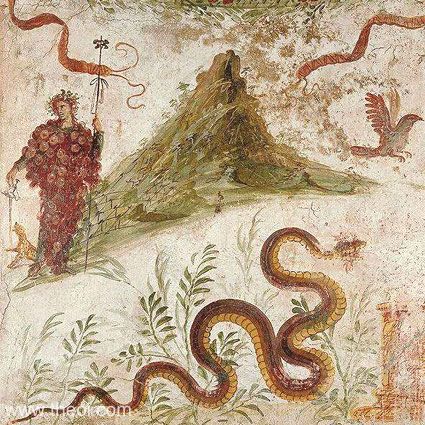A nice article posted over at Ovi Magazine yesterday.
Some Musings on the Nexus between the Mytho-poetic and ReligionGo read the whole article.
2008-09-15 08:27:06
Poetry makes the world appear more intense, meaningful and significant. So does God to a believer. Depth psychology, a non-agnostic psychology, sees parallels between literature and religion, identifying spontaneous, self-organizing images that govern our perspectives and actions. What has religion to say about poetry? Obliquely, a good deal. Poets need a vision of the world, and for long centuries the Christian church provided that, not only in doctrine but in revelation, experience and inspiration. A poet's religious affiliations were not merely reflected in the semantic core of his work, but conditioned the vocabulary, the structure of his arguments and patterning of his Christian outlook.
The great figures of Elizabethan art were united in holding with passion and assurance to a medieval world modified by the Tudor regime. The poet was most original when most orthodox and of his age. And in that world, far from being a sign of modesty, innocence, or intuitive virtue, not to know oneself was to resemble the beasts, if not in coarseness at least in deficiency of education. Self-knowledge was not egoism but the gateway to all virtue as Socrates had originally taught. Of the heroes in Shakespeare's four tragic masterpieces two, Othello and Lear, are defective in self-understanding, and two, Macbeth and Hamlet, in will. The conflicts in mature Shakespearean tragedy are between the passions and reason. But Shakespeare animates these conflicts with unique intensity.
Most believers follow in the faith of their parents and community. Of those who change allegiance, not all undergo sudden conversation, many being persuaded by example and reflection. There comes a time in many lives when the truth becomes apparent and people believe they see realities that were previously hidden or existing merely as reports or faith. Considered carefully, such mystical experiences can be distinguished from numinous (awe-inspiring, indicating presence of a divinity), visionary and occult experiences, and from ordinary religious affections. Primarily they are noetic (intellectual). Their recipients may be a consciousness of nothing, of an undifferentiated unity, or of an immediate and loving awareness of God. They may also be pantheistic: within and without seem as one; the world has a marvelous and extraordinary beauty; space and time are transcended. Though contradictory if put into words, common to all these is an experience of the world as alive and filled with joy and blessedness.
Religion is not reducible to social function, though many seek faith because ultimately men are failures. Without sin, suffering and evil there cannot be free will. Guilt is our response to evil. We do not deduce evil from standards, but as a violation of the taboos which make possible our cultural and social life. Religion becomes meaningful in acts: ritual, prayer, mystical encounters. Meaningful is not equivalent to the empirical, to universally accessible acts of perceiving. The Eucharist is understandable to believers within the framework of an entire system of ritual symbols. Moral content is given in the very act of perceiving and understanding. As Plotinus remarked, "God is only a name if spoken about without true virtue".
The language of myth is closed and self-supporting, not easily translated or transferred from one culture to another. Meaning is formed by acts of communication, and has to be recreated in those acts time and again. It is always possible to reduce religion to anthropology or social science, but such explanations give no abiding satisfaction. Religion is the sacralization of identity. Whereas identity in animals is rank or territory, in humans it is more often symbolic: in terms of class, sex, attitudes to money, beauty, equality. Sacralization is an emotionally welding of an identity which, sudden or not, consolidates and stabilizes that identity: certain patterns of symbolic systems acquire a taken-for-granted, eternal quality.
Tags:

No comments:
Post a Comment